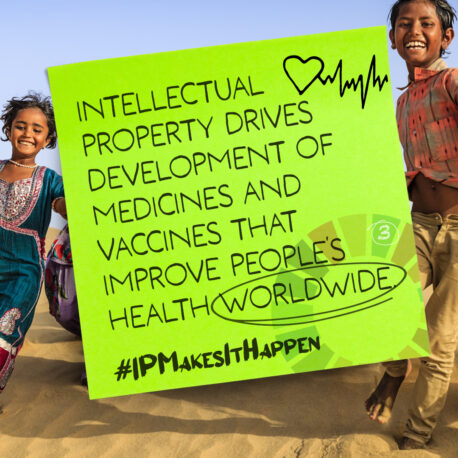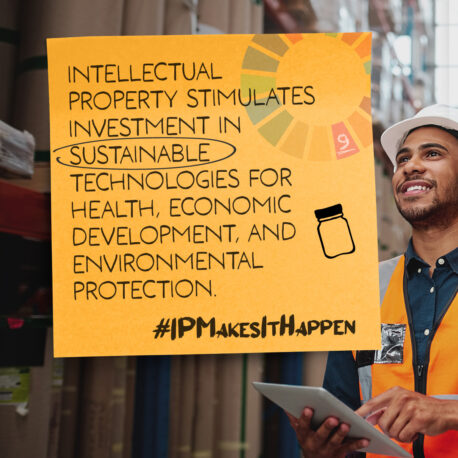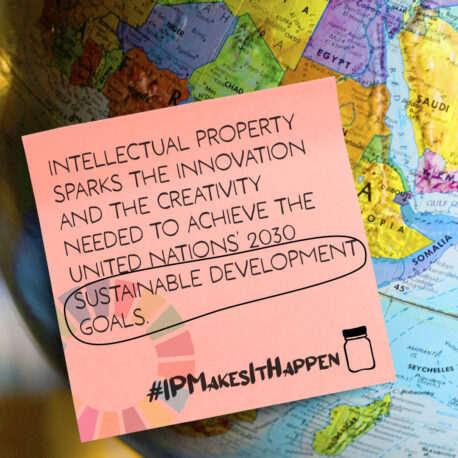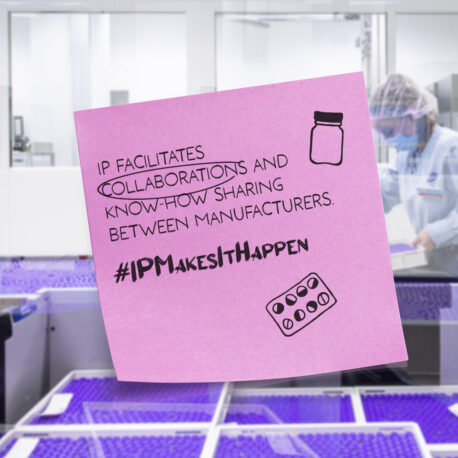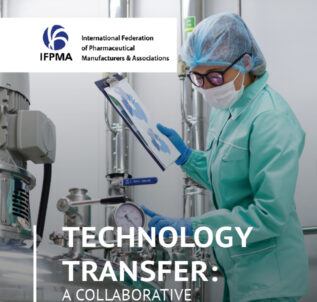Intellectual property
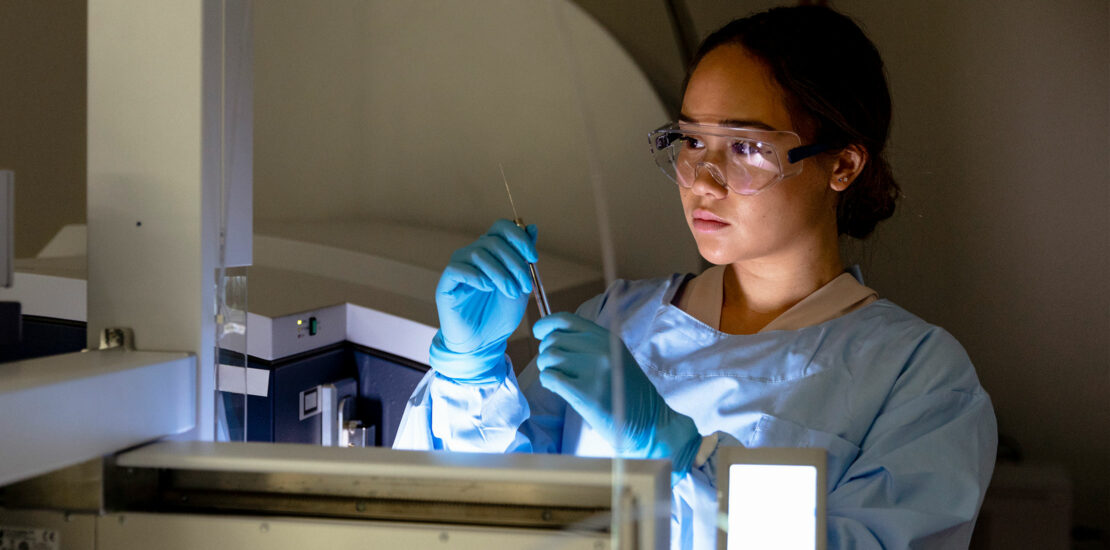

IFPMA fosters an understanding of the enabling role intellectual property (IP) plays in driving innovation in the pharmaceutical industry, ultimately making health breakthroughs happen – breakthroughs that bring benefits to patients and society more generally.
Overview
The IP system underpins a sustainable innovation ecosystem that helps researchers from universities, small biotechs, and pharma companies deliver pioneering healthcare solutions for the future.
As users of the intellectual property incentive framework, IFPMA and the innovative pharmaceutical industry champion the understanding that IP enables academics, entrepreneurs, the private sector, and other stakeholders to conduct research, invest, and move science forward.
A strong IP system helps drive constant sustainable innovation and delivers most of today’s, and tomorrow’s, breakthroughs as well as continuous improvement of medicines and vaccines. It helps offer patients the greatest choice of treatments with health outcomes that matter.
As a result of IP, our industry has developed new medicines to meet the world’s emerging health needs. In the last 20 years alone, our industry has developed over 430 new medicines, as well as focusing on treating cancers, cardiovascular diseases, and diabetes.
The industry has developed vaccines to protect against more than 30 diseases, including recent vaccines to prevent meningococcal diseases, Ebola, malaria, COVID-19, and human papillomavirus (HPV). Today, there are more than 9,000 drugs in development across all therapeutic fields.
By helping turn ideas into assets that address unmet needs, improve lives, and strengthen economies, IP is essential to global economic health.
patents registered in 2020 by the innovative pharmaceutical industry, through the Patent Cooperation Treaty (PCT) of the World Intellectual Property Organization
new medicines were launched in 2021, while currently more than 9,000 compounds are at different stages of development globally
R&D intensity, compared its nearest rival - the IT industry, at 11.8%. The innovative pharmaceutical industry carries out more R&D than any other
The role of policy
Several stakeholders play an important role, including educational institutions, universities, and courts. But government policies still need to prioritize IP and be geared to encouraging entrepreneurs and the private sector to continue to move science forward.
At the most basic level, government policies to nurture domestic scientific communities and develop stable and transparent legal systems go a long way in encouraging innovation.
Stability in industrial and healthcare policy helps reduce the investment risks of innovators in both the public and private sectors. This encourages them to develop the sort of long-term research plans and investment projects that characterize the pharmaceutical industry.
Upgrading the levels of education and skills in the science stream is necessary to contribute to each stage of the pharma innovation process, from the earliest days of product development to large-scale clinical testing.
Countries with strong education systems contribute to a dynamic workforce that can sustainably replenish research positions over generations.
IFPMA advocates for these policies in different fora, showcasing how they enable solutions for existing and future ailments, diseases, and pandemics, and how IP is critical to achieving the SDG 2030 Agenda.

The IP Pact
The IP PACT is an unprecedented declaration affirming the industry’s strong commitment to keeping the needs of patients at the heart of what we do. We and our members endorse the IP Pact

#AlwaysInnovating: The pharmaceutical innovation journey
Pharmaceutical innovation – the core of our industry’s work – relies on pushing the limits of scientific knowledge to advance new medicines and vaccines for the benefit of people everywhere.
IP as an enabler in fighting against COVID-19
Over two decades of investment powering tenacious R&D laid the groundwork for the record-shattering development timelines of the mRNA and viral vector vaccines and treatments to mitigate COVID-19 disease.
Global legal frameworks supporting innovation were essential to the continuous pursuit of safe and effective tools against COVID-19.
They underpinned collaboration between pharmaceutical innovators and governments, universities, and other research partners to speed progress on hundreds of potential COVID 19 diagnostics, therapeutics, and vaccines.
IP assures collaborators that their technologies can be securely shared, and effective, safe vaccines produced.
This has given companies the confidence to conclude more than 380 voluntary technology transfer agreements to expand the manufacturing scale-up of COVID-19 vaccines.
The IP framework has also enabled companies to enter into 138 voluntary manufacturing arrangements for COVID-19 treatments. Over 92% of these collaborations involved technology transfer, and 43 came within the first year of the pandemic.
Advocating for strong IP incentives
Historically, the majority of innovative pharmaceutical R&D has taken place in higher-income countries.
In today’s globalized, interconnected, and fast-moving world, there is a growing need to empower people worldwide to find creative solutions to the different health challenges we face.
There are a variety of tools available to encourage a favorable environment for each stage of the R&D process, from basic research to clinical trials.
#IPMakesItHappen
IP and innovation
Learn more about the role of intellectual property in supporting present and future innovation.




